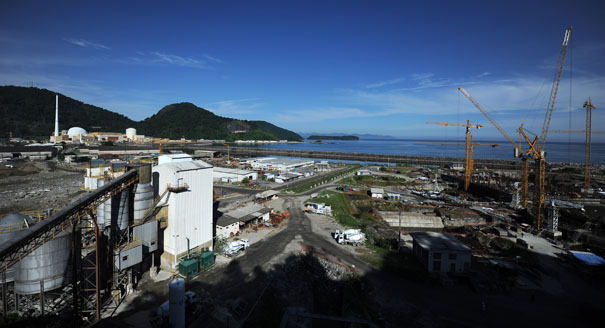Source: Nonproliferation Review
Abstract
Brazil, a developing country with an advanced nuclear program, presents an interesting case for observers of nuclear politics. Brazil is one of a handful of countries that possess uranium-enrichment technology, one of three countries in Latin America that produce nuclear power, and the only country without nuclear weapons to pursue an ambitious nuclear-powered submarine program. Among external views on Brazil's nuclear politics, the perceptions of Argentina and the United States matter most. With Argentina, Brazil shares responsibility for regional security. The two countries’ commitment to a bilateral nuclear safeguards arrangement contributes to a peaceful environment in the region. The United States will continue to set the tone in global nuclear matters and thus its views of Brazil's role in the nuclear field will continue to matter to Brasília, even as Brazil's political and economic crises have thrown the country’s nuclear future into uncertain territory.
Among the external perceptions of Brazil's nuclear policy, the views of Argentina—Brazil's most important neighbor in South America—and the United States—the most consequential player in the global nuclear politics—deserve consideration. This article explores how these two states have engaged with Brazil on nuclear matters over the past few decades. Brazil, Argentina, and the United States form a triangle, in which the nuclear balance between Brasília and Buenos Aires determines how Washington views these countries' nuclear policies.
Argentina is Brazil's closest partner in the region and its most attentive observer. Views on Brazil's nuclear policy within Argentina vary. Some groups, especially the technical and scientific communities, align with the positions of their neighbor—they seek cooperation with Brazil and empathize with its quest for self-sufficiency in the nuclear field. Yet there is also a minority among observers in Argentina who are anxious about Brazil's nuclear program, including its nuclear-submarine project. With a new administration in Buenos Aires as of late 2015, voices in Argentina calling for the government to sign the Additional Protocol of the International Atomic Energy Agency (IAEA) are growing.
Brazil's relationship with the United States on nuclear matters has never been smooth. The United States was the first to offer Brazil nuclear technology under the 1953 Atoms for Peace program, but it limited access later on. Today, Washington is concerned about Brazil's refusal to sign the Additional Protocol, and its nuclear-submarine program also raises some questions in the United States.1 American officials do not see Brazil as a proliferation threat per se; rather, they hope to bring Brazil fully into the nonproliferation fold.
Brazil may have reasons to doubt the sincerity of Argentina's concerns and question whether some of these stem from the naturally competitive relationship between the two neighbors. Brazil can also resist US nonproliferation pressure, noting Washington's own inconsistent nuclear policy. But Brasília cannot afford to completely ignore the perceptions, assumptions, and views of its nuclear policy held by these two actors. Argentina, together with Brazil, provides the backbone of regional security, and the United States remains the most influential actor on the global nuclear scene.
This article was originally published in Nonproliferation Review





